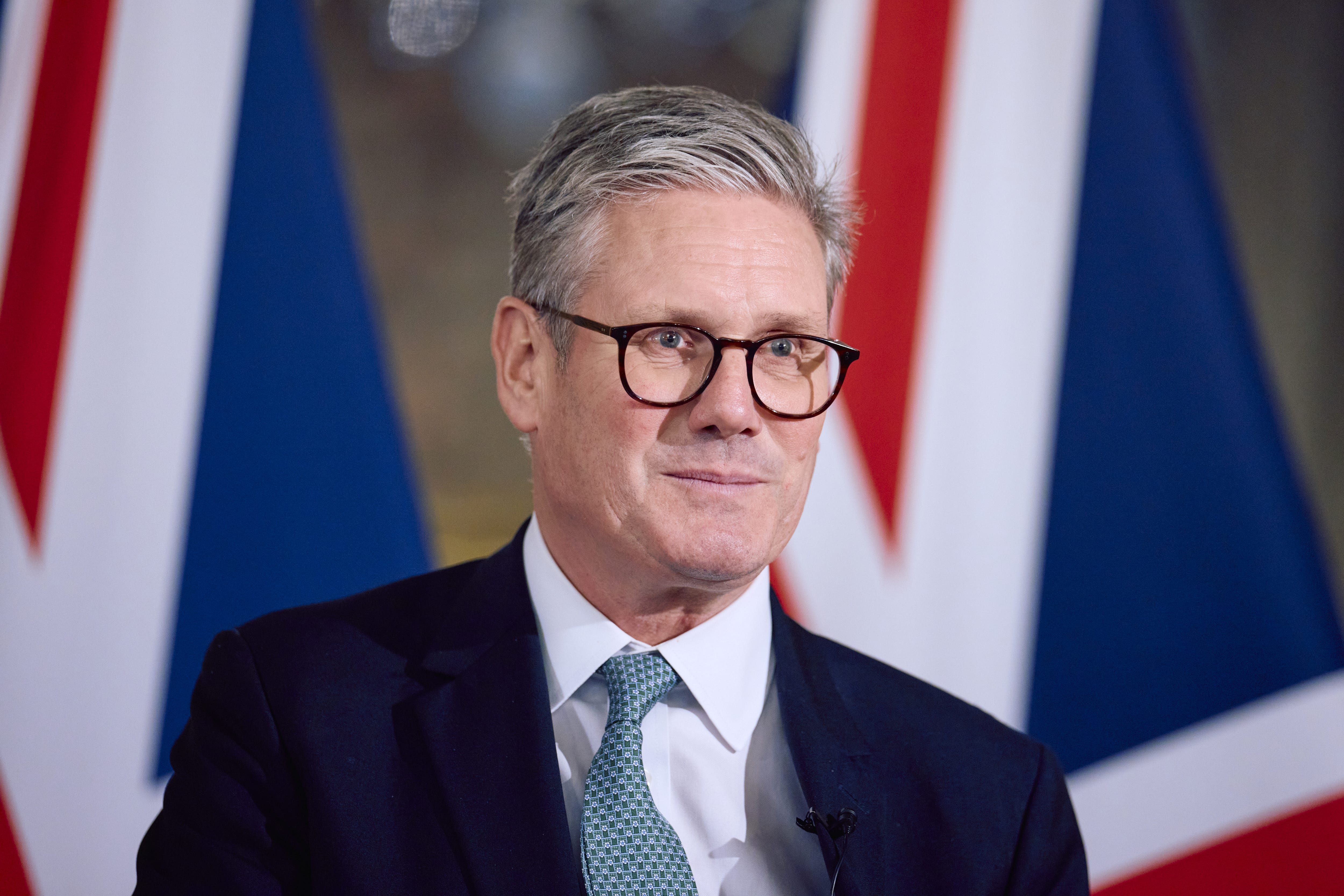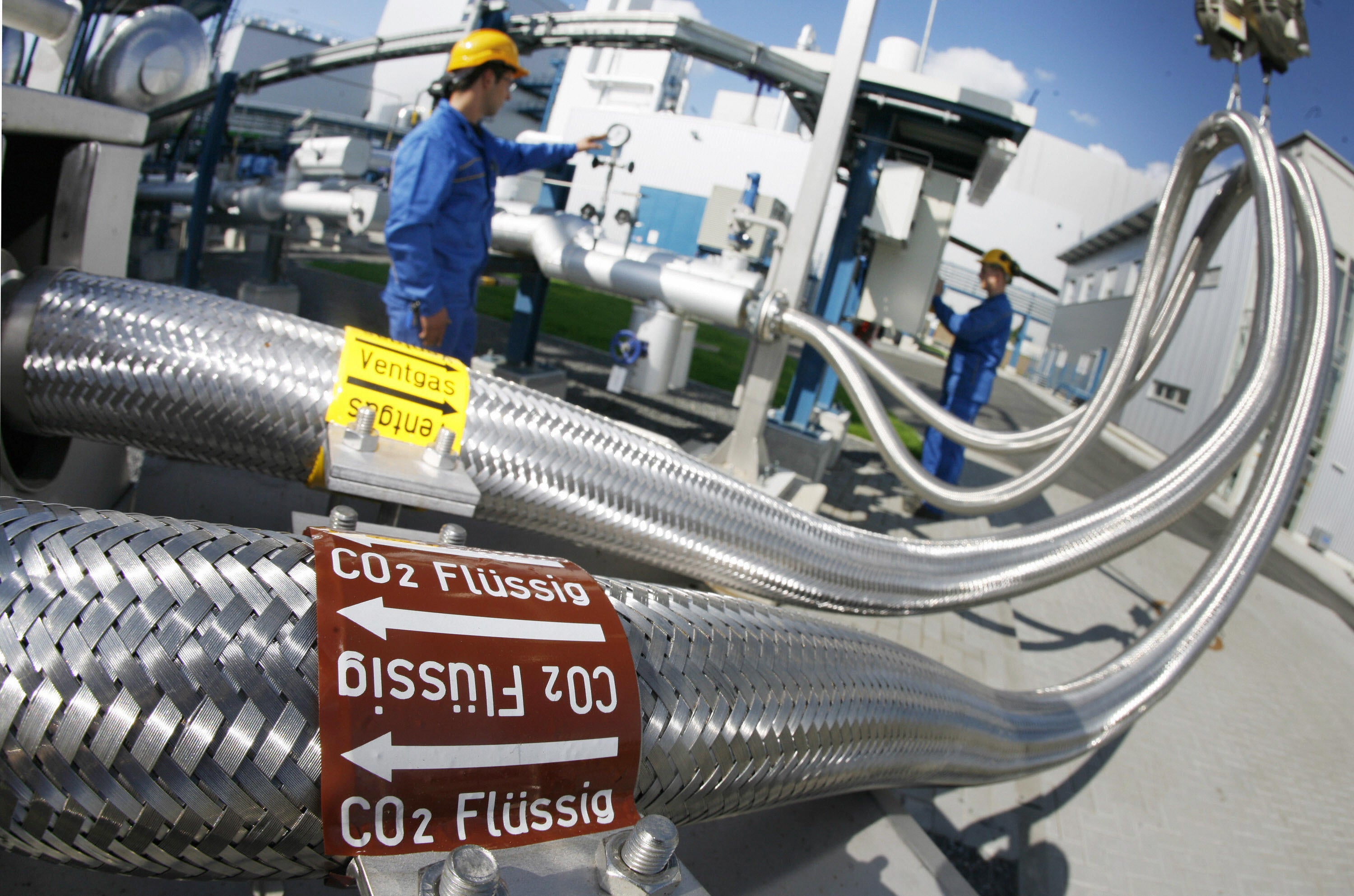Sir Keir Starmer will promise to create 4,000 jobs by ploughing £22bn into projects to capture and store carbon emissions from energy, industry and hydrogen production.
On a visit to Liverpool, the prime minister will unveil two “carbon capture clusters” in Merseyside and Teesside to be developed in the next 25 years.
As well as creating thousands of jobs directly, Labour said the investment will support 50,000 jobs in the long-term.
Announcing the investment, Sir Keir said his government is “reigniting our industrial heartlands by investing in the industry of the future”.

He added: “For the past 14 years, business has been second-guessing a dysfunctional government – which has set us back and caused an economic slump.
“Today’s announcement will give industry the certainty it needs – committing to 25 years of funding in this groundbreaking technology – to help deliver jobs, kickstart growth, and repair this country once and for all.”
Carbon capture and storage (CCS) technology captures the emissions from burning fuels for energy or from industrial processes such as cement production, and uses or transports them for storage permanently underground – for example, in disused oil fields under the sea.
The International Energy Agency (IEA) and Climate Change Committee see it as a crucial tool in the fight against climate change.
It is also a key component in “blue” hydrogen, made from natural gas with the carbon emissions captured and stored to make it “low-carbon”, which can then be used as clean energy in power plants or industrial processes, although environmentalists warn blue hydrogen still requires a reliance on fossil fuels.
While it has long been championed as part of the solution – with Energy and Security and Net Zero Secretary Ed Miliband first announcing plans to develop carbon capture projects for power plants in 2009 during the last Labour government – and it uses well-tested technology, little progress has been made on it in the UK.
Funding of up to £21.7 billion over 25 years focuses on subsidies to three projects in Teesside and Merseyside, once they start capturing carbon from hydrogen, gas power, and energy from waste, to support the development of the clusters, including the infrastructure to transport and store carbon.

It will remove 8.5 million tonnes of carbon emissions each year, officials said, with the first carbon dioxide being stored from 2028.
The announcement comes days after Britain became the first industrialised nation to end 150 years of using coal to produce power.
Mr Miliband said: “On Monday, 150 years of coal in this country came to an end. Today, a new era begins.
“I was proud to kickstart the industry in 2009, and I am even prouder today to turn it into reality.”
The move has been welcomed by businesses involved in developing the two carbon capture clusters, which are focused on capture and storage of emissions from industrial, hydrogen and energy production.
Independent advisers the Climate Change Committee also welcomed the move, saying the commitment to the necessary technology was “very reassuring”. However, Greenpeace criticised the support for hydrogen from gas as putting the country at risk of “locking ourselves into second-rate solutions”.
Chancellor Rachel Reeves said: “This game-changing technology will bring 4,000 good jobs and billions of private investment into communities across Merseyside and Teesside, igniting growth in these industrial heartlands and powering up the rest of the country.”
Labour laid into the Conservatives’ record on CCS, highlighting the “painfully slow” development of the technology despite Britain being considered to have one of the most favourable environments for it globally.
A 2023 National Audit Office report warned that the cancellation of key CCS projects, including under David Cameron’s government in 2015 and the coalition in 2010, had “dented industry confidence” in the UK’s commitment to the technology.
The party said: “The Tories failed to realise the potential in CCS that the last Labour government envisioned. It’s up to the new Labour government to finish the job.”
The Conservative Party was approached for comment.

